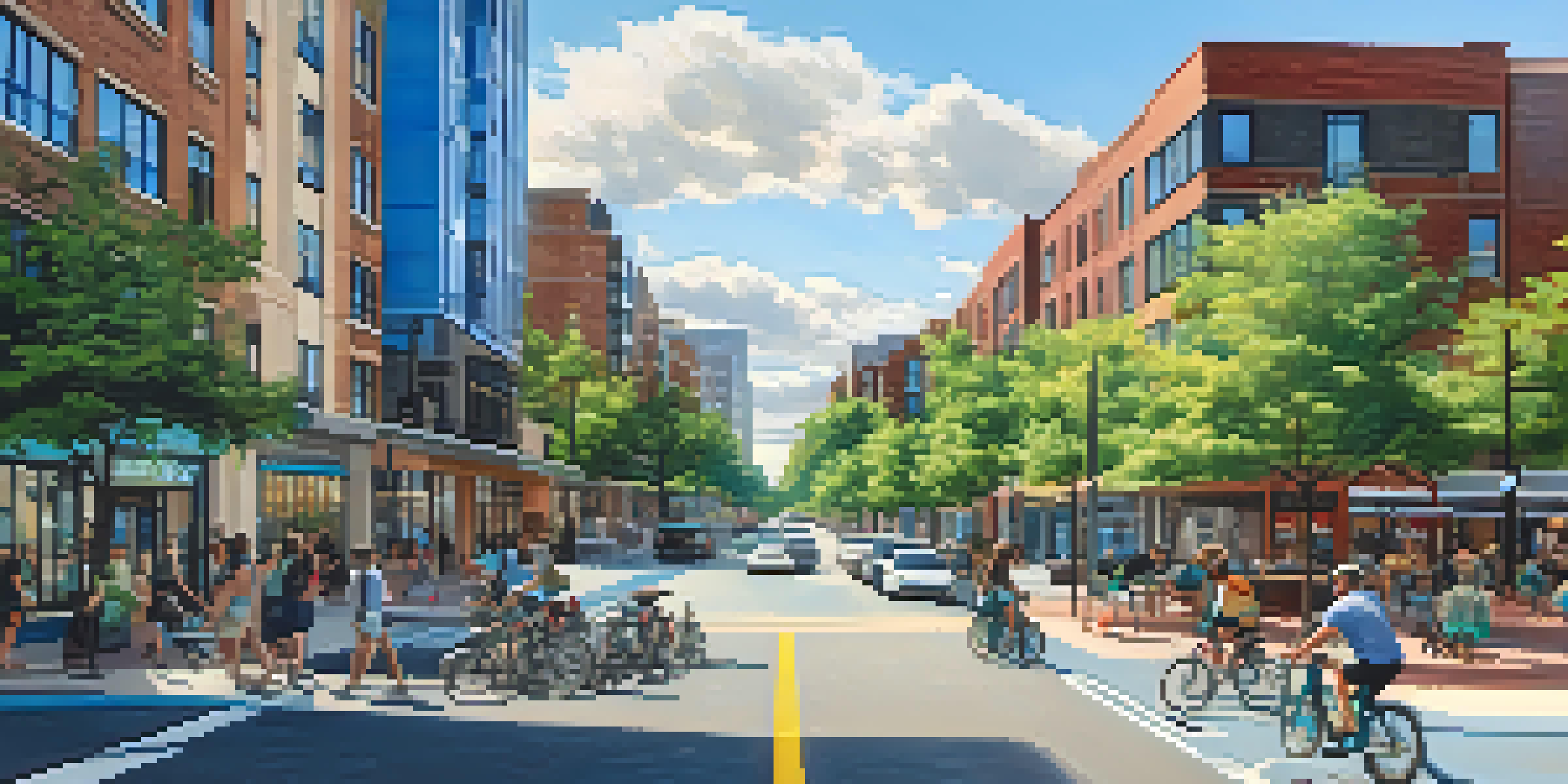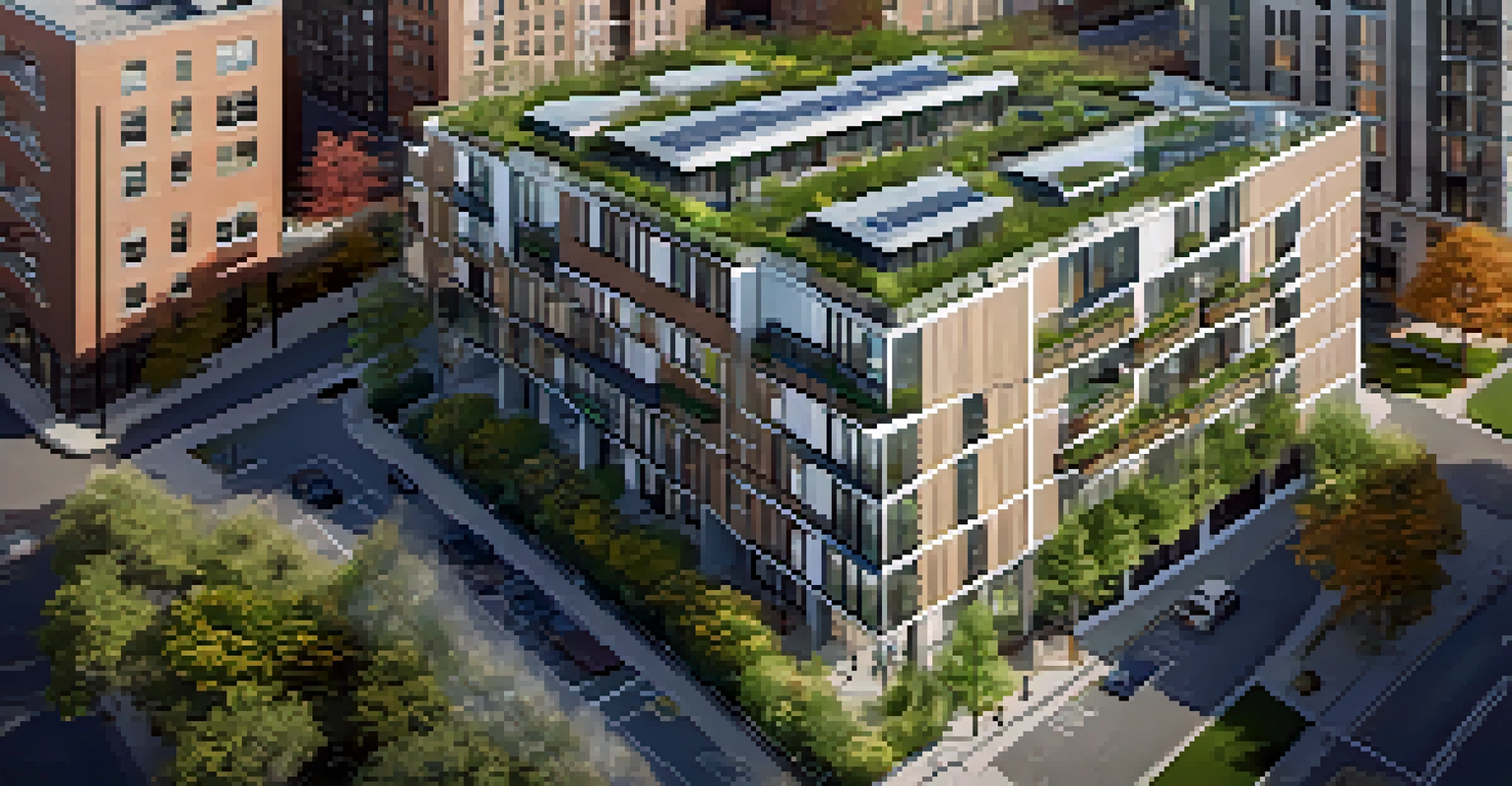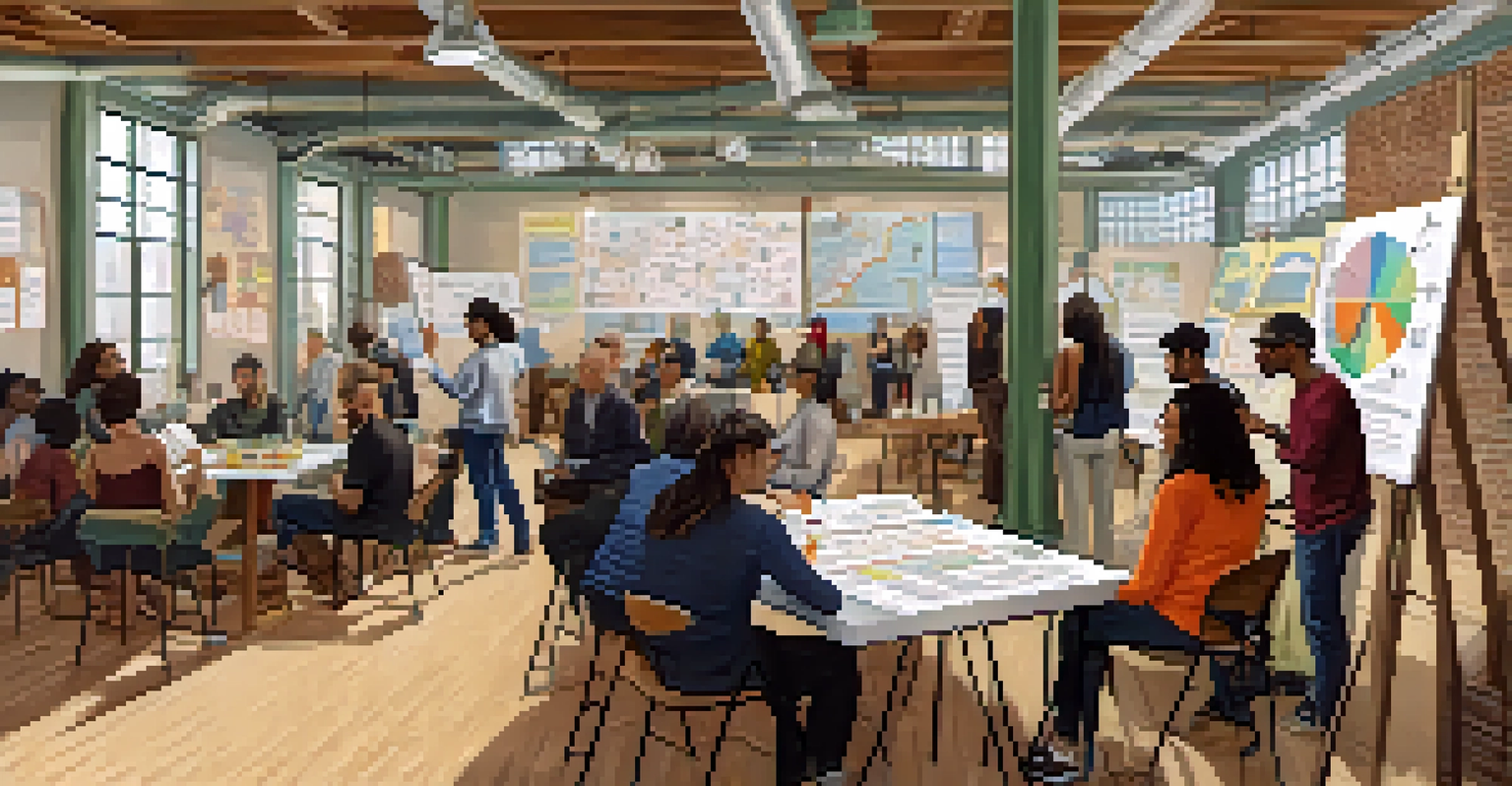Sustainable Real Estate Trends in Jersey City for 2023

Growing Demand for Green Buildings in Jersey City
As awareness of climate change increases, more buyers and renters are seeking green buildings in Jersey City. These structures often feature energy-efficient systems, sustainable materials, and eco-friendly designs that reduce environmental impact. With a growing emphasis on health and wellness, many people are looking for homes that not only lower their carbon footprint but also enhance their quality of life.
The future will be green, or not at all.
Developers are responding to this demand by incorporating sustainable practices into their projects. For instance, new residential buildings often include green roofs, which help manage rainwater and provide insulation. Additionally, many properties are now being designed with natural light and ventilation in mind, creating a more pleasant living environment.
This shift towards green buildings is not just a trend; it reflects a fundamental change in how we think about real estate. Homebuyers are increasingly aware that investing in sustainable properties can lead to lower utility costs and better long-term value, making green buildings a smart choice for today's market.
Emphasis on Renewable Energy Solutions
In 2023, Jersey City is witnessing a surge in the integration of renewable energy solutions within new developments. Solar panels are becoming a standard feature on both residential and commercial buildings, allowing property owners to reduce their reliance on traditional energy sources. This not only contributes to sustainability but also helps residents save on energy bills over time.

Moreover, local initiatives are encouraging the use of wind energy and other renewable sources. Incentives for developers who incorporate these technologies are becoming more common, making it easier for them to invest in sustainable energy solutions. As a result, we are seeing more buildings equipped with energy-efficient appliances and smart home technologies that optimize energy usage.
Growing Demand for Green Buildings
Jersey City's buyers increasingly favor green buildings that enhance life quality and lower environmental impact.
The move towards renewable energy is more than just a trend; it's a necessary step for the future. By embracing these solutions, Jersey City is setting a precedent for other urban areas looking to combat climate change and reduce their carbon footprint.
Prioritizing Sustainable Transportation Options
Sustainable real estate in Jersey City isn't just about the buildings themselves; it's also about how residents get around. The city is increasingly prioritizing sustainable transportation options, such as electric vehicle charging stations and bike lanes. This focus on accessibility and eco-friendly transportation encourages residents to adopt greener habits.
Sustainability is no longer about doing less harm. It’s about doing more good.
Many new developments are strategically located near public transit hubs, making it easier for residents to choose public transportation over driving. With the rise of remote work, more people are looking for neighborhoods that support an active lifestyle, including walking and biking paths. Developers are recognizing this trend and designing communities that foster a sense of connectivity.
By promoting sustainable transportation, Jersey City is not only improving air quality but also enhancing the overall livability of the area. This shift towards greener commuting options is a critical aspect of the city’s vision for a sustainable future.
Community Engagement in Sustainable Development
Community involvement is becoming a cornerstone of sustainable real estate trends in Jersey City. Developers are now seeking input from local residents when planning new projects, ensuring that developments meet the needs of the community. This collaborative approach fosters a sense of ownership and pride among residents, making them more likely to support sustainable initiatives.
Public workshops and forums provide platforms for residents to voice their opinions and share ideas about sustainable living. By incorporating feedback from the community, developers can create spaces that not only align with environmental goals but also enhance the overall quality of life. This trend highlights the importance of community in shaping a sustainable urban landscape.
Renewable Energy on the Rise
New developments in Jersey City are integrating renewable energy solutions like solar and wind to promote sustainability.
As more neighborhoods adopt this model of engagement, we can expect to see a significant shift in how real estate developments are approached. This inclusive strategy not only empowers residents but also leads to more thoughtful and sustainable urban planning.
Innovations in Sustainable Construction Practices
Innovation is at the heart of sustainable real estate trends in Jersey City, particularly in construction practices. Builders are now utilizing advanced technologies and methods that minimize waste and reduce environmental impact. Techniques such as modular construction and 3D printing are gaining traction, allowing for more efficient material use and faster project completion.
Additionally, many contractors are shifting towards using recycled and sustainable materials in their building processes. This not only helps to reduce the carbon footprint of new developments but also encourages a circular economy where materials are reused and repurposed. As these innovative practices become more widespread, they will play a critical role in shaping the future of construction.
The integration of technology in construction processes reflects a broader commitment to sustainability. By prioritizing innovation, Jersey City is setting an example for other urban areas looking to embrace green building practices.
The Rise of Mixed-Use Developments
Mixed-use developments are rapidly gaining popularity in Jersey City, blending residential, commercial, and recreational spaces into cohesive communities. This trend not only supports sustainable living by reducing the need for long commutes but also fosters a vibrant local economy. Residents benefit from living close to their workplaces, shops, and parks, creating a more integrated lifestyle.
With an emphasis on walkability, these developments encourage residents to engage with their surroundings and support local businesses. This shift toward mixed-use spaces is a response to the demand for urban living that prioritizes convenience and connectivity. Developers are investing in creating multifaceted communities that cater to a variety of needs.
Community Engagement in Development
Developers in Jersey City are actively involving local residents in planning projects to foster sustainable urban growth.
As mixed-use developments continue to flourish, they are transforming the landscape of Jersey City. This approach not only enhances the livability of the area but also contributes to more sustainable urban growth.
Focus on Water Conservation and Management
Water conservation is becoming a crucial aspect of sustainable real estate trends in Jersey City. With increasing concerns about water scarcity, developers are implementing strategies to minimize water usage in new buildings. Features such as rainwater harvesting systems and drought-resistant landscaping are being integrated into designs to promote efficient water management.
Additionally, many new developments are utilizing smart irrigation systems that adjust water use based on weather conditions, ensuring that landscapes remain vibrant without wasting resources. This focus on water conservation not only benefits the environment but also helps property owners reduce their utility costs over time.

As Jersey City continues to prioritize sustainability, water management will play a key role in future developments. Emphasizing conservation demonstrates a commitment to responsible resource use and sets a positive example for other urban areas.